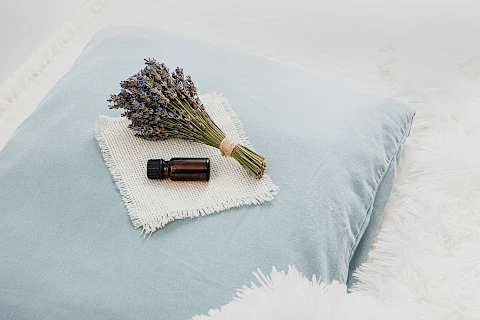
Sundowning is a common phenomenon that affects individuals with Alzheimer's or dementia. It is characterized by increased confusion, agitation, or restlessness during late afternoon or evening hours, presenting a significant challenge for both patients and caregivers. While traditional pharmacological treatments can help, they often come with side effects.
Senior Helpers Northern Kentucky will dig into the world of non-pharmacological approaches, specifically looking at light therapy, aromatherapy, and music therapy, and how they can be beneficial for those experiencing sundowning.
What Is Sundowning?
Sundowning refers to the changes in behavior seen in people with dementia or Alzheimer's, typically characterized by increased confusion, agitation, or restlessness that usually occur during the evening or nighttime. These symptoms can have a profound effect on the individual, leading to sleep disturbances and a more challenging caregiving experience.
The Need for Alternative Therapies
While pharmacological treatments are commonly prescribed, they can sometimes result in unwanted side effects. Alternative therapies provide a holistic method to alleviate symptoms without the associated risk of pharmacological treatments. By incorporating these methods into the evening routines of those affected, sundowning symptoms can be managed more effectively.
Light Therapy for Sundowning
Light therapy involves exposure to specific types of light at certain times of the day. Timing and type of light exposure can influence the body's circadian rhythm, the internal clock that synchronizes biological processes with day and night.
Light therapy, especially in the morning, may help reduce sundowning symptoms by resetting the biological clock. Using lightboxes or lamps that mimic natural light can be a practical approach. However, consult with a healthcare provider before starting any new therapy.
Aromatherapy for Sundowning
Aromatherapy uses aromatic plant oils, including essential oils, to improve physical and psychological well-being. Certain scents can be especially calming and are believed to help reduce anxiety and promote a sense of peace.
Lavender, for example, is often used for relaxation. Incorporating aromatherapy into evening routines—like adding a few drops of essential oil into a relaxing bath or diffuser—may help calm the individual and reduce sundowning symptoms. Some people may have sensitivities or allergic reactions to certain oils, so it's recommended to do a patch test before full usage.
Music Therapy for Sundowning
There's something profoundly powerful about music's ability to stir emotions and trigger memories. For individuals experiencing sundowning, music therapy can be incredibly beneficial. Research has shown that familiar, soothing music can help reduce agitation, improve mood, and even improve cognitive function. Including a period of music listening or sing-along sessions in the evening routine can create a calm environment that helps reduce sundowning symptoms.
Enjoy Custom Senior Care Services
While sundowning is a challenging aspect of Alzheimer's and dementia, it's comforting to know that there are alternative methods available to help manage these symptoms. Light therapy, aromatherapy, and music therapy are just a few non-pharmacological approaches that can make a significant difference.
If you need support in caring for a loved one with Alzheimer's or dementia in Northern Kentucky, Florence, Edgewood, Union, or the surrounding areas, contact us at Senior Helpers Northern Kentucky. Our team of professionals is highly trained and committed to providing the best care to seniors in our community.